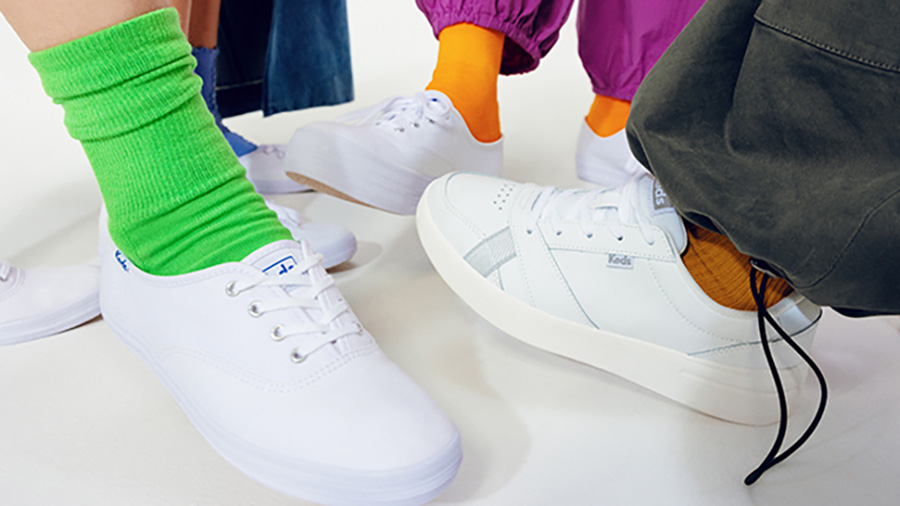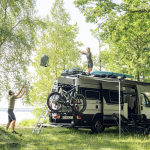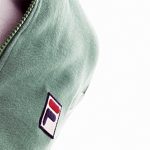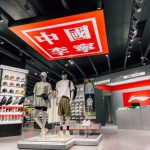Designer Brands, the parent of DSW, joined several retailers lowering its outlook for the year after seeing a first-quarter shortfall, but officials are hopeful that heightened focus on value and an increase in casual footwear brands will drive improved results in the back half of the year.
On an analyst call, Doug Howe, who assumed the role of Designer Brands’ CEO on April 1, said that the retailer’s first quarter faced difficult comparisons against an 18.1 percent revenue gain in the 2022 first quarter but still missed plan.
“Given the strength of our first quarter last year, which was propelled by the strong return of fashion, coupled with this year’s broad-based pressure on the consumer, we anticipated our first quarter would face headwinds,” said Howe, who formerly ran DSW. “That being said, the environment was slightly more difficult than we expected. I was pleased with how our team stepped up to read and react to an increasingly promotional environment and at the same time, manage our inventory level appropriately across both our retail and brand segments.”
In the quarter ended April 30, net sales declined 10.7 percent to $742.1 million, below Wall Street’s consensus target of $763.5 million.
Reported net income was $11.4 million, or 17 cents a share, including charges of 4 cents a share, primarily related to the CEO transition, restructuring, integration, and acquisition costs, partially offset by the valuation allowance change on deferred tax assets. In the year-ago period, earnings were $26.1 million, or 34 cents a share.
On an adjusted basis, earnings were down 61.0 percent to $14.3 million, or 21 cents a share, from $36.7 million, or 48 cents, a year ago. EPS was short of Wall Street’s consensus estimate of 27 cents.
Jared Poff, EVP and CFO of Designer Brands, said the first quarter was “slightly more challenging” than anticipated and that trajectory change into Q2 is not materializing as originally projected.”
Poff added, “From a retail perspective, we continue to react to the constrained discretionary consumer and saw an increasingly promotional environment across most of our retail peers. Additionally, we had an especially pressured March as the weather did not support our all-important Marpril [combined March and April] expectations; this is a peak holiday for seasonal product, a category we dominate and over-penetrate. From a wholesale perspective, we met expectations which were down to last year due to many of our retail partners assuming a conservative stance with near-term inventory adjustments.”
Comparable store sales decreased 10.4 percent against a gain of 15.3 percent a year ago. U.S. retail comps, consisting of the DSW chain, were down 12 percent and were up about 2 percent on a two-year stack basis. Same-store sales at Designer Brands’ Canadian operations, including DSW stores in Canada and The Shoe Company banner, were up 3 percent on top of a 41 percent comp gain last year. Vincecamuto.com’s sales were up 8 percent against a 20 percent gain a year ago.
Gross margins eroded 120 basis points to 32 percent. Much of the decrease was due to its moves to reestablish its clearance business. The margin decline also reflects some deleverage with the sales decline and given the promotional environment. Poff noted that gross margins continue to be structurally more robust than pre-pandemic, with consolidated gross margins up 230 basis points compared to the first quarter of 2019.
Adjusted SG&A as a percent of sales was 28.9 percent in the quarter, up from 26.8 percent in the first quarter of 2022, as sales deleverage offset cost-containment efforts.
Howe noted that despite the negative trend that the retail industry has experienced since the fourth quarter and the sequential downtrend in February, March and April of 2023, Designer Brands and the DSW chain continue to see increased customer demand in the casual segment of offerings. However, the increased casual sales were not significant enough to offset decreases in dress and seasonal businesses.
In its retail segments, a “sharp pullback” came in seasonal products, with sandal sales down 14 percent in women’s and 8 percent in men’s. In the overall casual category, women’s were up 7 percent and men’s grew 4 percent at its retail operations.
“We are leaning on our ability to flex and pivot our assortment to offer even more of the casual brands they want,” said Howe. He also said that the company increased its “promotion drivers” in the quarter as it progressed lower than plan.
Beyond casual, Designer Brands found success in the quarter, strategically building back its clearance inventory with U.S. clearance sales expanding 5 percent on a net basis during the quarter compared to last year.
Howe also said he’s encouraged by the progress being made on its goal to double sales of owned brands from 2021 to 2026. He said, “While editing and amplifying with our top national brand partners, we continue to see bright spots in our own brands, particularly in the casual category and are very excited to continue integrating our new brand’s acquisitions into our portfolio.”
Owned brand’s penetration grew to 27 percent of Designer Brands’ net sales in the quarter, boosted by acquisitions of Keds, Le Tigre and Topo Athletic.
Elaborating on the progress of the acquired brands, Howe said Keds saw positive wholesale growth year over year in the quarter and is performing in line with expectations.
“Keds recently launched a brand refresh focused on honoring individual expression through playful optimistic style,” said Howe. “Our first product collection that celebrates individual self-expression is focused on the Keds Champion sneaker, our original sneaker and icon. Keds Champion sneaker is reinterpreted with different silhouettes celebrating our iconic style, versatility and staying power. The Court, which launched recently, is a new style within the collection that pays homage to tennis heritage and has been successful with both online offerings as well as our recent collaboration with Recreational Habits, experiencing very strong sell-through and multiple points of distribution as well as on Keds.com.”
Le Tigre is expected to launch at DSW in late summer for back-to-school selling. Said Howe, “This brand provides us with another unique opportunity to offer fashion-forward athletic footwear at a reasonable price point and furthers our own brand reach into the athletic category. Much like Keds, it’s a heritage brand with a rich history. It offers great versatility and a lifestyle approach, and we anticipate customers will be excited to see this online and in stores.”
Lastly, the acquisition of Topo provides Designer Brands with a specialty athletic brand that it plans to expand across wholesale and internal direct-to-consumer channels. Said Howe, “We remain on track with our integration plans and are excited about the potential of this brand.”
Howe said Keds, Le Tigre and Topo overall “will strengthen our positioning in the athletic category while moderating Designer Brands penetration to dress and seasonal, creating less volatility related to weather and fashion trends. In fact, during the first quarter, we saw strength in our own athletic brands relative to seasonal and dress categories.”
Howe also noted that the company is closing in on an agreement to become the exclusive licensee of the Hush Puppies brands in the U.S. and Canada, which will also help its casual push. DSW has been the exclusive retail outlet for Hush Puppies over the last two years.
Among its legacy-owned brands, Lucky Brand “continues to be a standout,” with women’s sandals up 10 percent in the first quarter over last year and being helped by a resurgence of denim and more western styles. Crown Vintage “performed well” and continues to benefit from its partnership with actress Emma Roberts.
In men’s, the Vince Camuto and Crown Vintage casual businesses deliver “encouraging results.”
Howe also noted that complementary to the owned brands initiatives, Designer Brands remains “committed to our national brand strategy and growing strong relationship with the largest national brands that are most relevant to our retail customer base.” As part of this effort, DSW will regain allocations, as reported by SGB Media, of Nike product starting in October. Howe said, “Our partnership with Nike will allow us to provide an athletic offering across men’s, women’s and kids that gives our customers a premium physical and digital assortment.”
Looking ahead, Howe said he has grown more cautious about the balance of the year due to “several dynamics. First, we continue to see a consumer pressured by a macroeconomic environment, a factor that is now expected to be more impactful than originally anticipated. Second, the first quarter is a critical timeframe for our business as Marpril is one of our two biggest selling periods of the year. Given that we’ve seen weakness across our original expectations, coupled with a consumer continuing to lean into value, we will continue to leverage and increase the promotional and clearance strategy in the second quarter. As a result of these elements, we are lowering our sales and earnings guidance for 2023. That being said, we do believe these trends are temporary and expect to see improvement later in the year.”
Designer Brands’ updated outlook calls for the following:
- Designer Brands’ net sales growth, excluding Keds, is expected to be down mid- to high-single digits (down mid-single-digits previously);
- EPS, excluding Keds, is expected in the range of $1.20 to $1.50 ($1.65 to $1.75 previously); and
- The acquisition of Keds is still expected to add $75.0 million to $85.0 million and zero per share in EPS contribution.
Photo courtesy Keds
















